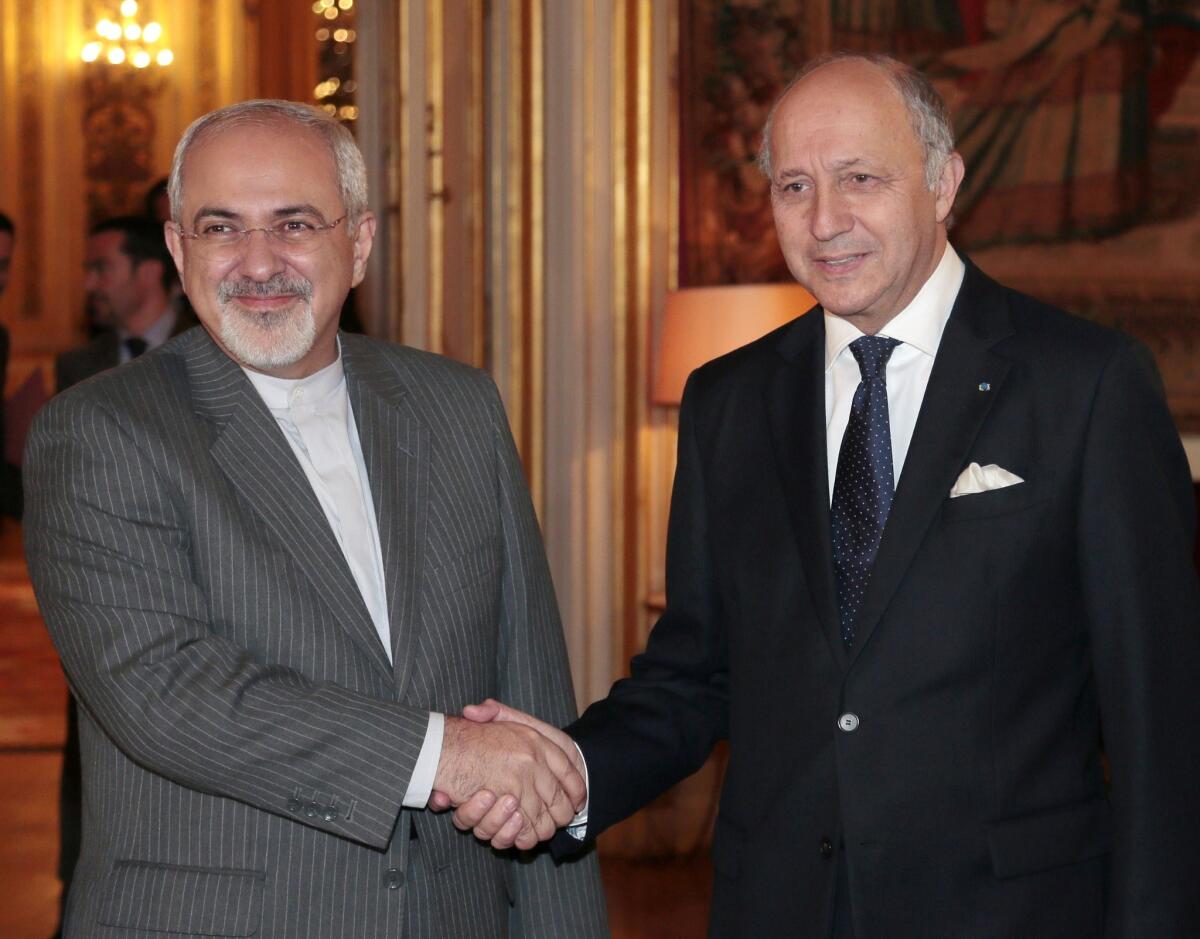U.S. seeking freeze in Iran nuclear program during negotiations

WASHINGTON -- Negotiations on Iran’s nuclear capabilities this week will focus on reaching an interim deal that halts the program during the months it may take for a comprehensive agreement to be worked out, a senior Obama administration official said Wednesday.
In return, Iran will be granted “very limited, temporary, reversible” relief from the sanctions that have been imposed by world powers worried that it is seeking a bomb-building capability, the official told reporters in Geneva. The deal’s goal will be “to put time on the clock,” the official said.
“What we’re looking for is a first phase, a first step, an initial understanding that stops Iran’s nuclear program from moving forward and rolls it back for the first time in decades,” the official said.
The negotiations, the second round in a series that began last month, will be held Thursday and Friday at the United Nations’ Palais des Nations in Geneva.
At the first round of meetings, Oct. 15-16, negotiators from Iran and six world powers discussed both the interim deal and the comprehensive agreement. But reaching an interim deal is urgent, in the Western view, because of fears that Iran might be using the negotiations to race ahead on the program.
The official didn’t say what curbs the so-called P5-plus-1 diplomatic group would demand, but said it would involve Iran’s existing stockpiles of uranium, the levels of uranium enrichment it is pursuing, and international monitoring. The group is expected to demand that Iran halt production of medium-enriched uranium, which can easily be converted into bomb fuel, and get rid of its existing stockpile of the material.
Iranian Foreign Minister Mohammad Javad Zarif declared in an interview with the French newspaper Le Monde on Wednesday that a deal could be struck this week. But Iranian officials have also insisted that they want substantial sanctions relief, and it remains unclear whether the six countries will be willing to suspend enough to satisfy Tehran.
U.S. and European officials have said they don’t want to lift the toughest sanctions on Iran – those curtailing oil exports and banking ties – until Iran is fully committed to curbing its nuclear program.
Diplomats on both sides have disclosed few details of the talks, making it impossible to tell if progress is being made after seven years of gridlock. But Iran is desperate for an easing of the crippling sanctions, and the U.S. and allies want to avoid allowing Iran to obtain nuclear weapons capability, or having to turn to a military means to prevent it.
“For the first time, we aren’t seeing them use this negotiating process simply to buy time,” the official said. “We are coming to understand each other in terms of what the equation would look like for a first step.”
At the same time, the official acknowledged that it was “very, very difficult to say” if a deal would be reached in this round of talks.
Undersecretary of State Wendy Sherman, the chief U.S. negotiator, visited Israel this week to reassure Israelis, many of whom fear that the Obama administration is edging toward a concessionary deal that would allow Iran to secretly move toward bomb-making capability.
Sherman was asked by an interviewer from Israel’s Channel 10 on Tuesday to comment on reports that ministers close to Israeli Prime Minister Benjamin Netanyahu fear the U.S. is preparing to cut a deal similar to former British Prime Minister Neville Chamberlain’s appeasement of Germany’s Adolf Hitler in 1938.
“I obviously don’t believe that,” she said. “Whatever agreement we reach, Israel will know about, understand, will have consulted us on, because Israel’s security is bedrock.”
ALSO:
Bombing in heart of Syria’s capital kills 8
Egypt court upholds ban on Muslim Brotherhood
Britain to stop building warships in England, keep Scotland shipyard
Twitter: @richtpau
More to Read
Sign up for Essential California
The most important California stories and recommendations in your inbox every morning.
You may occasionally receive promotional content from the Los Angeles Times.











